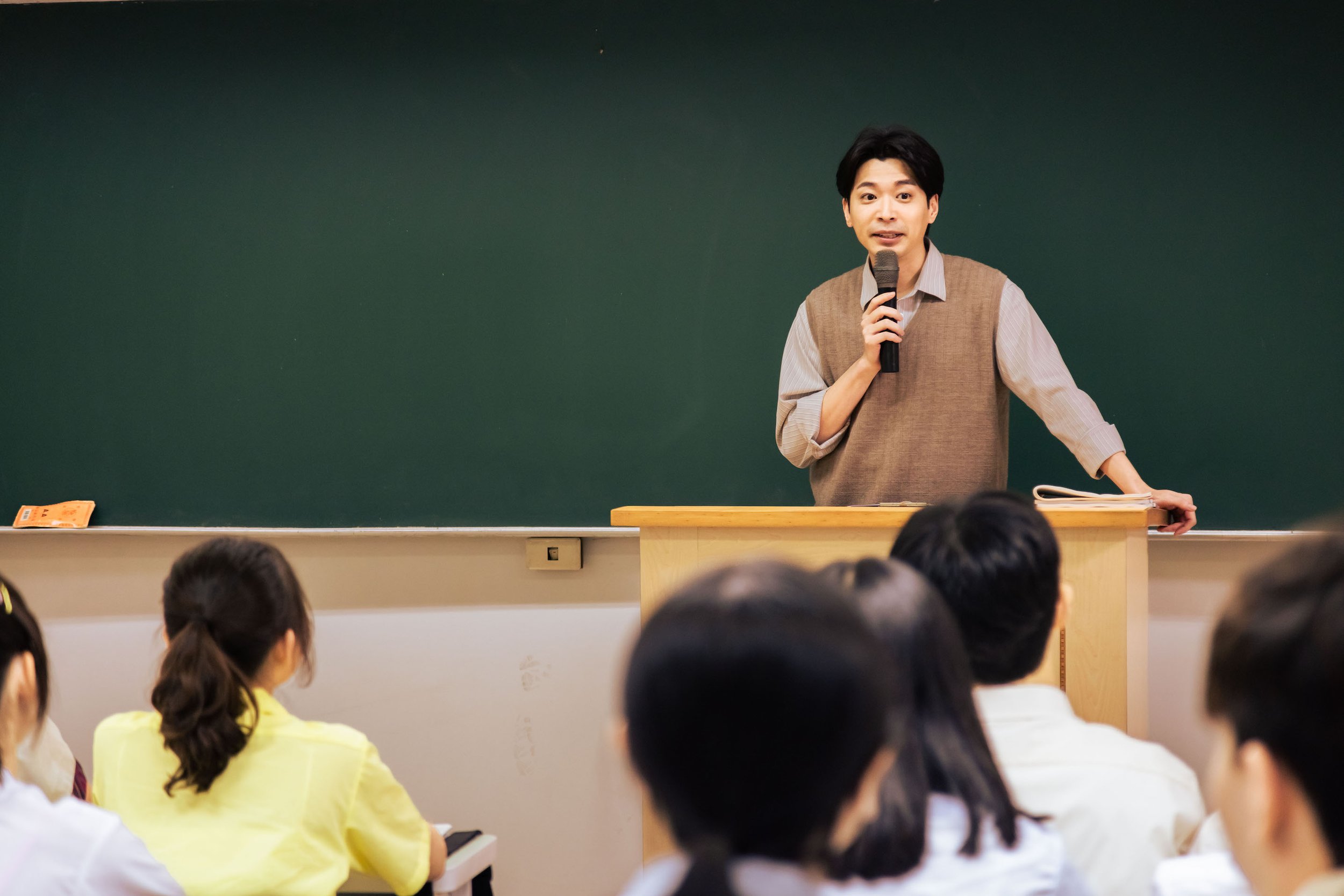Happy Ever ‘After’
Yeah, this is the stuff of the after school special, but Blue Lan’s resolute optimism is a breath of fresh air.
After School
Director: Blue Lan • Writer: Blue Lan
Starring: Zhan Huai-yun, Bruce Chiu, Wu Jian-he, Charlize Lamb, Hou Yan-xi
Taiwan • 2hrs 4mins
Opens Hong Kong December 14 • IIB
Grade: B-
I guess it should come as no surprise that After School | 成功補習班 is as bullheadedly optimistic as it is, given Taiwan’s pre-eminent spot as Asia’s most progressive place for LGBTQ+ people. Director Blue Lan Cheng-lung’s second feature (after the less remarkable A Fool in Love, Love Like a Fool) is, allegedly, a semi-autobiographical return to high school and the year (?) three friends spent at a cram school with an inspiring teacher – who happens to be late documentary director Mickey Chen. Chen is a major figure in Taiwanese docs, and rose to prominence for his films about sexuality, gender, LGBTQ+ subcultures and human rights, most notably 1999’s Boys for Beauty, War of the Roses (2002) and My Friend With AIDS (2004).
Now, Chen’s life on its own could demand a biopic, but here he’s rolled into a story about Chang Cheng-hang (Zhan Huai-yun as a teen, director Lan as an adult), Cheng Hsiang (Bruce Chiu Yi-tai and Chen Bo-lin), and He Shang (Wu Jian-he and Nikki Hsieh Hsin-ying) recalling their time at a cram school when Chen substituted for another instructor on mat leave. When the film starts, Chen is dying, bringing Cheng-hang, Hsiang and Shang together for a protracted flashback to their time in his class in 1994. It’s hard to parse what Lan is up to here; everyone ends the story as balanced, happy and fully realised adults, with supportive, accepting families. Lan isn’t an especially creative filmmaker, so there’s no visual style or language of note, which makes the saccharine ending all the more… well, saccharine. However. After decades of unhappy LGBTQ+ screen characters, murdered/addicted/sex worker (to the exclusion of all else) trans characters, and parents who never come around to just getting a grip, the saccharine happy ending is a refreshing change of pace. It doesn’t make the film less choppy tonally, but it helps.
Once again, it’s 1994 and AIDS is relatively new. Safe sex is an emerging buzzword and the gently rebellious Cheng-hang, Hsiang and Shang are growing into their sexualities as a cis dude (in ’94 it was just “straight guy”), a gay dude, and a trans woman. The seeming catalyst for these realisations is Chen Sih (Charlize Lamb Yi-lan), who in grand Taiwanese YA romantic drama fashion has the hots for Shang, though Cheng-hang has the hots for her, and Hsiang as the consummate wing-man stumbles into himself while living with Cheng-hang and his family. His own family is a hot mess, and without the Cheng’s he’d never graduate. College entrance exams loom, so they’re all at the cram school, and when Mickey Chih (Hou Yan-xi) comes in, with his easy-going, honest, unconventional ideas about what students need to hear, they find the space to explore themselves. In between classes, they hang out at the mall, discover the gay bar, and sing to Leslie Cheung (“Monica”) on the beach. There are hurdles along the way, mixed messages, youthful misunderstandings, and an overzealous school principal – Shang’s father (Wang Tzu-chiang) – but the class is ultimately embracing of all identities. Then they have a party.
After School presents an idealised vision of high school life, and of the era of emerging HIV/AIDS panic, and god knows I would love to believe Lan’s school days were actually like this. But, as I said, we’ve had plenty of heightened negativity in stories about young people discovering their identities, so why the fuck not settle in for a film that looks on the bright side? For one that’s optimistic in its view that a young woman spurned by the object of her affection because he’s transitioning wouldn’t take the bitter road (someone has to be bitter so it’s Cheng-hang that’s lightly tantrum-y). This works as much as it does because the young cast is all in – Lamb stands out as the self-assured Sih – and even when they’re being, frankly, 17, it’s hard not to like the core crew. Close behind Lamb is Chiu as the a guy upon whom it’s dawning that he’s in love with his best mate (a Taiwanese coming-of-age staple). His interactions with his Down’s brother (where’d that come from?) are legit sweet, and lend Hsiang some needed depth. After School is a little all over the map in its storytelling. Shang vanishes for a bit too long, the requisite balls-based comedy could be deleted, and Mickey’s impact seems to come from a single campfire sing-along, but that’s not really Lan’s point now, is it? — DEK



